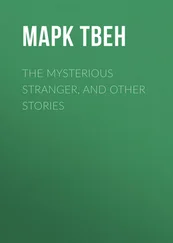Lotta was Finnish, and she lived in the West Village in Manhattan. I was looking for an apartment. An agency had given me Lotta’s number.
“I sometimes have to rent the apartment,” said Lotta, “when I don’t have any work.”
“And where do you live then?”
“Usually with friends,” she said, “but this time I couldn’t find anyone. Do you know of anywhere I can go?”
The apartment was big enough for two, so I offered to let her stay in it. She agreed right away.
“You must never pick up the phone,” she said. “Always wait till you know who’s calling. If you want to talk to me, call my name, and I’ll switch off the answering machine.”
“Were you there the first time I called?” I asked.
“Yes,” she said.
Lotta lived on the fourth floor of an old building on 11th Street. Everything in the apartment was black, the furniture, the sheets, the rugs. A few withered cactuses stood on the little wrought iron balcony that opened out onto the yard. On the table by Lotta’s bed, and the glass-topped table that had the answering machine on it, there were dusty shells and twigs of coral. The few lamps had red and green bulbs in them, which made the rooms look odd at night, as if they were under water.
When I came to inspect the apartment, Lotta had answered the door in pajamas, even though it was midday. After showing me round the place, she went straight back to bed. I asked her if she was ill, but she shook her head and said, no, she just liked sleeping.
After I moved in, I never knew her to get up before midday, and usually she went to bed before me as well. She read a lot, and she drank coffee, but I rarely saw her eat anything. She seemed to live off coffee and chocolate. “You should have a healthier diet,” I said, “then you wouldn’t be so tired.”
“But I like sleeping,” she said, and smiled.
There was a black kitten living with us too. Lotta had been given it, and she called it Romeo. Later, she learned that Romeo was a girl, but the name stuck anyway.
It was October. I was meeting a couple of old friends, Werner and Graham, who were working for a bank. I suggested we go to the shore for a long weekend. Graham said we could take his car, and I asked Lotta to come along. We set off on a Friday morning. We wanted to go to Block Island, which is a little island about a hundred miles east of Manhattan.
We made our first stop in Queens. We were late setting out, and already hungry. We bought hotdogs from a stand on the road. Lotta just drank coffee. At a crossroads a little way ahead of us was a black man, who was standing beside a cardboard box full of vacuum-packed meat. Whenever the lights turned red, he would go from car to car and try to interest the people in the meat. When he caught sight of us he came running up, with one of the packages in his hand. We stopped and talked to him for a while. He spoke better French than English, and we asked him what he was doing in Queens. He didn’t mind our kidding around with him; probably he was hoping we would buy something from him. Even as we drove off, he was still smiling, waving his packages at us, and calling out something after us that we couldn’t understand.
We got onto the island on the last ferry of the day. We had left the car in an almost deserted carpark on the mainland. The crossing took two hours, and even though it was cold, Werner spent the whole time outside, leaning on the railing. The rest of us sat in the cafeteria. The ship was almost empty.
Right next to the port on the island there was a big, crumbling turn-of-the-century hotel. Not far away was a simple B and B in a shiny, white-painted clapboard house. Lotta and I shared a room — it seemed the natural thing to do.
There was a near gale blowing in off the sea. All the same, we thought we’d take a walk before supper. There was a gray wooden boardwalk going along the shore. Once outside the village, it suddenly stopped, and we had to trudge on through sand.
Werner and I were walking together. He was very quiet. Graham and Lotta had taken off their shoes, and were looking for shells nearer the tide line. Before long, they had dropped back. Only occasionally we heard a shout or Lotta’s high-pitched laugh through the roar of the surf.
After we’d walked along a while, Werner and I sat down on the sand to wait for the others. We could see their silhouettes black against the glinting water.
“What are those two doing down there?” I asked.
“Picking up shells,” said Werner placidly. “We’ve gone a long way.”
I clambered up onto a dune to look back. Sand leaked into my shoes, and I took them off. The village was a long way away. Some of the houses already had lights on. When I came back down, Werner had got up and walked down to the water. Lotta and Graham were sitting in the shelter of a dune. They had put their shoes back on. I sat down beside them and we looked silently out to sea, and watched Werner throwing rocks or shells into the water. The wind blew up little tornadoes of sand along the beach.
“I’m cold,” said Lotta.
On the way back, I walked with Lotta and helped her carry some of the shells she’d picked up. I had knotted together my shoelaces, and my shoes were dangling over my shoulder. The sand felt chilly underfoot. Graham was walking on ahead, Werner was following us at a distance.
“I like Graham,” said Lotta.
“They work in a bank,” I said, “him and Werner. But they’re okay.”
“How old is he?”
“We’re all the same age as each other. We went to school together.”
Lotta talked about Finland. She had grown up on a farm, north of Helsinki. Her father had bred bulls. Lotta had left home early, and gone first to Berlin, then London, then Florence. Finally, four or five years ago, she had turned up in New York.
“Last Christmas I visited my parents. For the first time in years. My father’s not well. At first, my plan was to stay with them, but I came back in May.” She hesitated. “I suppose I only went away on account of Joseph.”
“What happened with Joseph? Were you an item?”
Lotta shrugged her shoulders. “It’s a long story. I’ll save it for some other time.”
As we were approaching the village, we turned around to look for Werner. He was a long way back, and was walking slowly down by the water’s edge. When he saw us waiting for him, he waved and speeded up a bit.
We had supper in a little fish restaurant. Lotta said she was a vegetarian, but Graham reckoned she was allowed to eat fish anyway. We paid for her, and she ate whatever the rest of us ate, but she didn’t drink any wine.
After Lotta had been silent a while, Graham and I sometimes lapsed into our native tongue. Werner didn’t speak, and it didn’t seem to bother Lotta either way. She ate slowly and with concentration, as if she had to think about every move and every bite. She noticed me watching her and smiled, and only went on eating when I’d stopped looking at her.
At night, Lotta wore pink pajamas with appliquéd teddy bears. She had short blond hair. She was certainly over thirty, but she seemed like a little kid. She lay on her back, and had pulled the covers up to her chin. I rested my head on my hands, and looked at her.
“Do you think you’re going to stay in New York?” I asked.
“No,” said Lotta, “I don’t like the climate.”
“Is Finland any better?” I asked.
“At home I was always cold. I want to go to Trinidad. I’ve got a lot of friends there.”
“You’ve got a lot of friends, period.”
“Yes,” said Lotta.
“Well, you’ve got some friends in Switzerland now.”
“I’d like to have a little shop in Trinidad,” she said. “Cosmetics, films, aspirin … things imported from here. You can’t get that kind of thing over there. Or else it’s very expensive.”
Читать дальше












